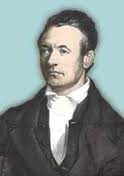A Model T Movement #2
“You can have any color you want, as long as it’s black.” Legend has it that those words were uttered by Henry Ford in his battle against change.  Actually in many ways Henry Ford championed change. He didn’t invent the assembly line, but he perfected it’s use. He didn’t invent the personal automobile, but he made it accessible to the common person. If people would have actually had garages, you could have said, “Henry Ford was responsible for putting a car in every garage!”
Actually in many ways Henry Ford championed change. He didn’t invent the assembly line, but he perfected it’s use. He didn’t invent the personal automobile, but he made it accessible to the common person. If people would have actually had garages, you could have said, “Henry Ford was responsible for putting a car in every garage!”
Henry started an automobile movement.
Leaders who follow Jesus need to study movements. We go through seminary and leadership development seminars and so often the training context is the leadership of institutions, or occasionally teams. But we need to study the leadership of movements more than we study the leadership of organizations. Christianity was always meant to be a movement.
Surely we can learn something from the the man who brought the auto to the masses. What can we learn about movements from Mr. Ford?
1) His primary goal was putting the automobile in the hands of everyone. So he made it…
- a) Inexpensive — anyone could own it. In fact the reason why he wanted to stick with black was less an aversion to change and more the fact that it was the cheapest color.
- b) Easy to operate — anyone could drive it. Two speed transmission, very simple controls.
- c) Simple in design — anyone could fix it. The simplicity in design meant they rarely broke down, but if they did, no computer specialists. All you needed was wire, a pliers, and a hammer.
2) He brought a number of innovations to the auto industry, innovations that shaped the industry for generations…but the innovations were in service of those three goals. Not innovation for innovation’s sake, but for a purpose. Everything from vanadium steel, to the fly wheel magneto to the left hand steering column to the two speed transmission. Cheap to build, simple to drive, easy to fix.
3) He made the Model T easy to modify. In other words, he made it simple enough that other people could modify according to their context and taste. With a few tools and a little time, the Model T could be transformed into a camper, a portable sawmill, a grain thresher, or a sporty racer. Auto historians credit the Model T with today’s multi-billion dollar aftermarket industry.
So if we want the Church to be a movement, we might consider making it simple enough that anyone can run it, or fix it. Make it simple for people to get in and drive. Not simplistic, simplistic dumbs down the mystery and relegates faith to the realm of the archaic. But simple things can go deep, be woven through with mystery and make room for faith. We need to innovate towards simplicity, solve complexities, let people drive.
If we want the church to be a movement, we will make wise decisions about what needs to be the same for everyone — maybe it isn’t the color, but we need unity in some core areas. But we will also allow — not just allow, encourage — contextual modifications. The church need not, should not look the same in every context.
By the way, Steve Lutz’ great blog post on campus ministry initially got me thinking about Ford’s T. Click Steve to read it.





 Heart as in passion, motivation, what drives generosity. Here are a few of the hearts of generosity.
Heart as in passion, motivation, what drives generosity. Here are a few of the hearts of generosity. It’s in the book of Corinthians. Paul is challenging the church. Actually it’s more of a rebuke. Apparently there was a man who was sleeping with his father’s wife…and for some reason the church was embracing this situation. Almost celebrating it.
It’s in the book of Corinthians. Paul is challenging the church. Actually it’s more of a rebuke. Apparently there was a man who was sleeping with his father’s wife…and for some reason the church was embracing this situation. Almost celebrating it. It’s not that I never hug. I love hugging my family. I’ll hug my kids anytime it embarrasses them or encourages them. I’ll hug my wife anytime she wants me too. But with all my hug-ishiness, this story grabs me, it’s a good reminder that we are all hugging something for all it’s worth — and what we hug determines the quality and direction of our hearts.
It’s not that I never hug. I love hugging my family. I’ll hug my kids anytime it embarrasses them or encourages them. I’ll hug my wife anytime she wants me too. But with all my hug-ishiness, this story grabs me, it’s a good reminder that we are all hugging something for all it’s worth — and what we hug determines the quality and direction of our hearts.
 Lots of thoughts go through my mind — The day after Christmas 2004, Cyclone Nargis, Walking through Tokyo International Airport a week ago, Some friends in Hawaii, Some friends headed to Hawaii, and even a RV in State College touting the end of the world.
Lots of thoughts go through my mind — The day after Christmas 2004, Cyclone Nargis, Walking through Tokyo International Airport a week ago, Some friends in Hawaii, Some friends headed to Hawaii, and even a RV in State College touting the end of the world. If you have read all my blogs to this point, you have a bare understanding of our mission in Myanmar. What you may not realize is that Myanmar was the first country to receive a Protestant American Missionary. In 1812,
If you have read all my blogs to this point, you have a bare understanding of our mission in Myanmar. What you may not realize is that Myanmar was the first country to receive a Protestant American Missionary. In 1812,
Leave a Reply